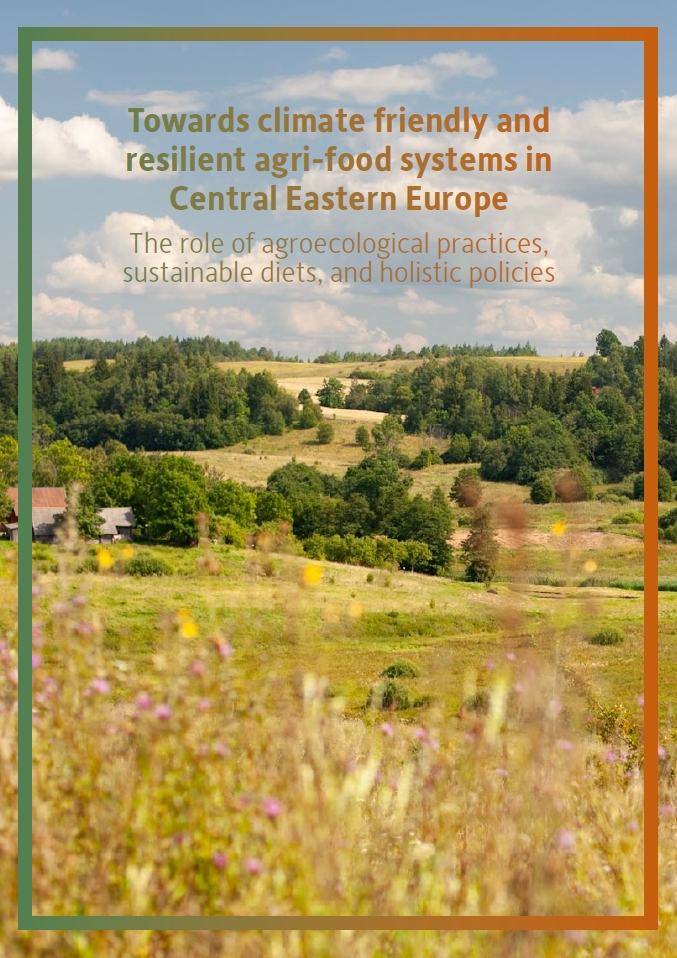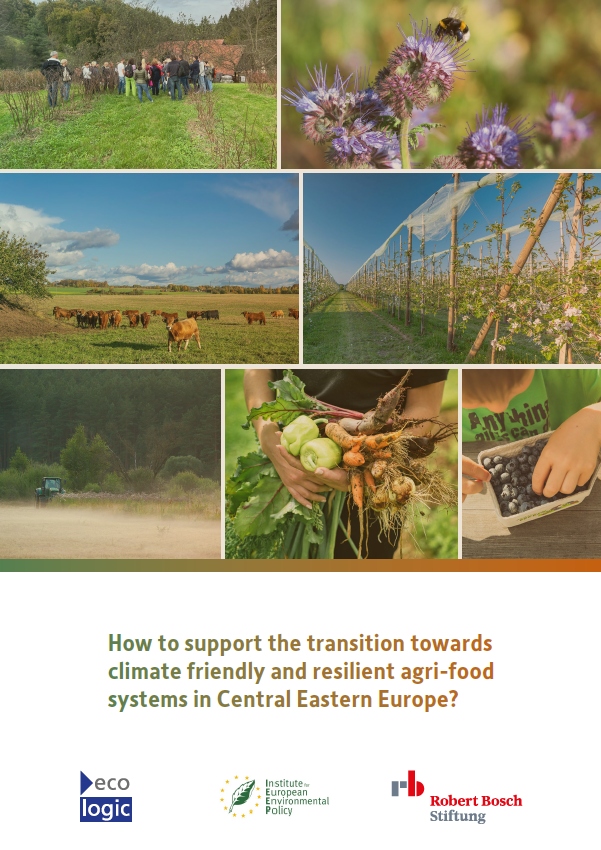Towards Climate-friendly and Resilient Agri-food Systems in Central Eastern Europe
The role of agroecological practices, sustainable diets, and holistic policies
- Publication
- Citation
Frelih Larsen, A. et al. (2024). Towards climate friendly and resilient agri-food systems in Central Eastern Europe: the role of agroecological practices, sustainable diets, and holistic policies. Ecologic Institute, Berlin. ISBN 978-3-937085-37-1
Agriculture in the EU accounts for approximately 13% of greenhouse gas (GHG) emissions. Globally, the agri-food system is responsible for nearly a third of global emissions. Agriculture and food consumption are key drivers of biodiversity decline, environmental degradation and health costs associated with the currently dominant diets. There is a growing recognition and consensus that we urgently need to improve the sustainability of agri-food systems to address these multiple and interconnected crises.
This report aims to provide inspiration and offer a framing for stakeholders in Central Eastern European (CEE) countries to pursue a more holistic and coordinated approach for transitioning towards climate friendly and resilient agri-food systems. The report draws on mixed methods, including literature analysis, interviews with national experts and stakeholders, and policy analysis. A separate Executive Summary provides a concise overview of the key findings and recommendations.
Critical analysis of current policy implementation
The report provides an analysis of how the CEE countries are currently using the main policy instruments at their disposal – the Common Agricultural Policy (CAP) and the National Energy and Climate Plans (NECPs) – to support the sustainability transition in agri-food systems and identifies gaps and recommendations for their improvement. Moreover, drawing on available literature and good examples of designing food policies, the report provides an overview of policy tools that countries can use to speed up the process of moving towards more sustainable food consumption.
Central Eastern European Countries
The 11 CEE countries – Bulgaria, Croatia, Czechia, Hungary, Estonia, Latvia, Lithuania, Poland, Romania, Slovakia, and Slovenia – share historical and socio-economic similarities, but also challenges and opportunities that distinguish them from non-CEE countries.
Some key messages from the report:
- The productivist agenda dominates agri-food discussions in CEE countries. There’s a need to better communicate the benefits of agroecological solutions, dietary changes, and reducing food waste at national level.
- The Common Agricultural Policy delivers limited mitigation impacts, mainly through reversible carbon sequestration. Emission reductions are minimal. Targeted nature-based and agroecological solutions, and ambitious animal welfare, receive very little support. In this programming period countries should reorient the budget towards ambitious area payments and set strong environmental focus for investments, advisory support, and eligibility criteria. They need to begin evidence-based dialogue to support a fundamental reorientation of the CAP post 2028.
- The draft National Energy and Climate Plans (NECPs) do not reflect sufficient ambition, as none of the CEE countries are projected to meet their ESR and LULUCF targets. They need to step up ambition for agroecological practices, organic farming, agroforestry, peatland rewetting, and sustainable livestock, as well as address dietary changes.
- Food policies should shift focus from individual responsibility to creating supportive food environments for sustainable consumption, and integrate health with environment and climate goals.
- Increased institutional capacities, cross-sectoral policy coordination, and research are needed to coordinate and sustain the transition.





